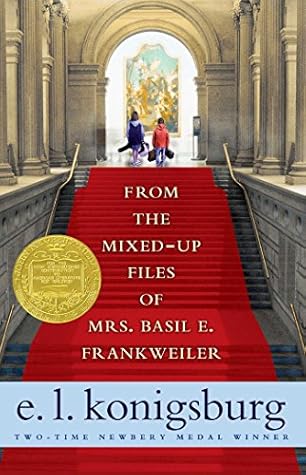More on this book
Community
Kindle Notes & Highlights
Read between
December 20 - December 24, 2021
She was the oldest child and the only girl and was subject to a lot of injustice.
You might call it caring. You could even call it love. And it is very rarely, indeed, that it happens to two people at the same time—especially a brother and a sister who had always spent more time with activities than they had with each other.
artistic activity was everywhere. Keeping track of the artists of the fifteenth and sixteenth centuries in Italy is as difficult as keeping track of the tax laws in the nineteen fifties and sixties in the United States. And almost as complicated.)
“The adventure is over. Everything gets over, and nothing is ever enough. Except the part you carry with you.
They don’t pause to let the vacation enter inside of them and take that home.”
that. I think you should learn, of course, and some days you must learn a great deal. But you should also have days when
you allow what is already in you to swell up inside of you until it touches everything. And you can feel it inside you. If you never take time out to let that happen, then you just accumulate facts, and they begin to rattle around inside of you. You can make noise with them, but never really feel anything with them. It’s hollow.”
But Claudia and Jamie would have been as unaffected by the spirit of patriotism and cooperation now as they were by the spirit of protest and contentiousness then, for neither civic pride nor civil disobedience was part of their emotional landscape. Theirs was a journey inside, and Claudia’s war was with herself.
Most readers focus on their rent-free accommodation in the museum and recognize that these details—accurate for their time—are the verisimilitude that allow Claudia and Jamie to live beyond the exact details of life in 1967.
I made up the story of Angel, prompted by a different story that appeared in the New York Times on October 25, 1965.
“Angel” became part of Claudia’s story about finding herself, about how the greatest adventure lies not in running away but in looking inside, and the greatest discovery is not in finding out who made a statue but in finding out what makes you.
And I need words for a second reason. I need them for the reasons that Jane Austen probably did. She told about the dailiness of living. She presented a picture that only someone both involved with her times and detached from them could present. Just like
me. I am involved in the everyday, cornflakes, worn-out-sneakers way of life of my children; yet I am detached from it by several decades. And I give words to the supermarket shopping and to the laundromat just as Jane Austen gave words to afternoon visiting and worry about drafts from open windows.
My phylogenetic need, adding another dimension to reality, and my class and order need, making record, are certainly the wind at my back, but a family need is the directed, strong gust that pushes me to my desk. And
here I don’t mean family in the taxonomic sense. I mean family that I lived in when I was growing up and family that I live in now.
And I put them there for my kids. To excuse myself to my kids. Because I have this foolish faith in words. Because I want to show it happening. Because for some atavistic, artistic, inexplicable reason, I believe that the writing of it makes normal of it.
Let the telling be like fudge-ripple ice cream. You keep licking vanilla, but every now and then you come to something darker and deeper and with a stronger flavor. Let the something-else words be the chocolate.”


